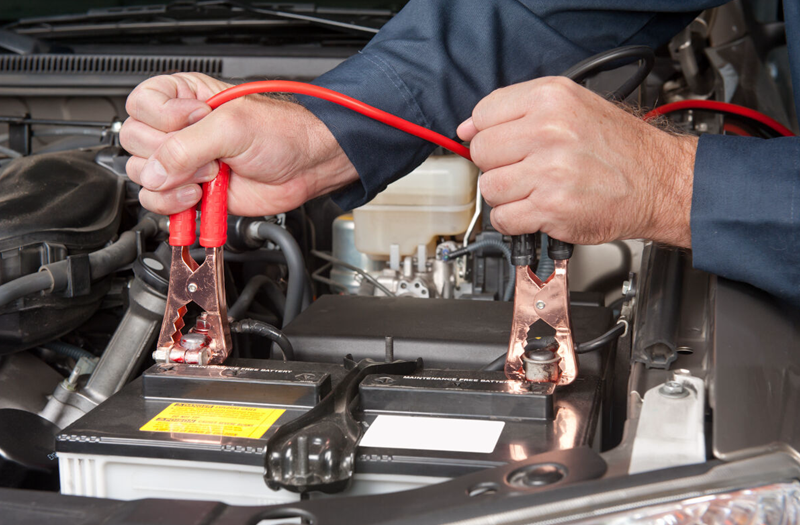Revolutionizing the Energy Industry: The Impact of Smart Grids and Lithium Batteries
In recent years, there has been a growing concern about the need to transition towards cleaner and more sustainable sources of energy. With the increasing demand for electricity and the urgency to reduce greenhouse gas emissions, the energy industry has been forced to explore new technologies and innovations. Two of the most promising advancements that are revolutionizing the energy industry are smart grids and lithium batteries.
Smart grids are a modernized version of the traditional electrical grid system. They incorporate advanced communication and automation technologies to optimize the generation, distribution, and consumption of electricity. By utilizing a network of sensors, meters, and control devices, smart grids enable real-time monitoring and management of energy flow. This allows for better coordination between power plants, renewable energy sources, and consumers, resulting in improved efficiency and reliability.
One of the key benefits of smart grids is their ability to integrate renewable energy sources into the grid. Traditional grids were designed to accommodate centralized power plants that rely on fossil fuels. However, with the increasing adoption of solar and wind energy, the generation of electricity is becoming more decentralized. Smart grids are capable of handling the variability and intermittency of renewable energy sources by dynamically adjusting the distribution and consumption of electricity. This not only reduces reliance on fossil fuels but also promotes the use of clean energy.
Lithium batteries, on the other hand, have emerged as a game-changer in the energy storage sector. Lithium-ion batteries, in particular, have gained popularity due to their high energy density, long cycle life, and fast charging capabilities. These batteries are widely used in portable electronic devices, electric vehicles, and now, in grid-scale energy storage systems.
The integration of lithium batteries into the energy industry has several advantages. Firstly, it enables better utilization of renewable energy. Energy generated from solar panels or wind turbines can be stored in lithium batteries during periods of low demand and released during peak hours. This reduces the need for backup power plants fueled by fossil fuels and allows for a more efficient use of clean energy.
Secondly, lithium batteries enhance grid stability and reliability. They provide a reliable source of power during blackouts or grid failures, ensuring uninterrupted electricity supply to critical infrastructure and residential areas. Additionally, they help balance the supply and demand of electricity, reducing the risk of power outages and grid instability.
Furthermore, lithium batteries facilitate the electrification of transportation. As the world moves towards a greener future, the demand for electric vehicles is increasing rapidly. Lithium batteries enable long-range driving, fast charging, and improved performance of electric vehicles, making them a viable alternative to traditional internal combustion engine vehicles. This not only reduces greenhouse gas emissions but also decreases our dependence on fossil fuels.
Despite these numerous benefits, there are still challenges that need to be addressed for the widespread adoption of smart grids and lithium batteries. One major hurdle is the cost. While the prices of lithium batteries have been decreasing steadily, they still remain relatively expensive compared to traditional energy storage options. Additionally, the installation and infrastructure costs associated with smart grids can be significant.

Another challenge is the need for regulations and policies that support the integration of these technologies. Governments and regulatory bodies need to incentivize the deployment of smart grids and lithium batteries through financial incentives and favorable policies. This will encourage investment in research and development, promote innovation, and accelerate the transition towards a cleaner and more sustainable energy future.
In conclusion, smart grids and lithium batteries are revolutionizing the energy industry by enabling the integration of renewable energy sources, enhancing grid stability, and promoting the electrification of transportation. While there are challenges to overcome, the potential benefits are significant. With continued advancements in technology, increased investment, and supportive policies, smart grids and lithium batteries have the power to reshape the energy landscape and pave the way towards a more sustainable future.
-
 Introduction In recent years, with the growing demand for renewable energy sources and portable power solutions, the 12V 100Ah LiFePO4 battery has emerged as the ultimate power solution for various electrical needs. This technologically advanced battery offers several advantages over conventional options, making it an ideal choice for both residential and commercial applications. Unmatched Power and Efficiency ...Weiterlesen
Introduction In recent years, with the growing demand for renewable energy sources and portable power solutions, the 12V 100Ah LiFePO4 battery has emerged as the ultimate power solution for various electrical needs. This technologically advanced battery offers several advantages over conventional options, making it an ideal choice for both residential and commercial applications. Unmatched Power and Efficiency ...Weiterlesen -
 Effektive Kommunikation ist entscheidend. Ob für den persönlichen Gebrauch oder im beruflichen Umfeld, wir sind stark auf verschiedene elektronische Geräte angewiesen, um in Verbindung zu bleiben. Von Smartphones und Laptops bis hin zu Wearables und Drohnen sind diese Geräte zu einem festen Bestandteil unseres täglichen Lebens geworden. Der Schlüssel zur Gewährleistung einer unterbrechungsfreien Kommunikation liegt jedoch in der Stromquelle, die diese Geräte antreibt –...Weiterlesen
Effektive Kommunikation ist entscheidend. Ob für den persönlichen Gebrauch oder im beruflichen Umfeld, wir sind stark auf verschiedene elektronische Geräte angewiesen, um in Verbindung zu bleiben. Von Smartphones und Laptops bis hin zu Wearables und Drohnen sind diese Geräte zu einem festen Bestandteil unseres täglichen Lebens geworden. Der Schlüssel zur Gewährleistung einer unterbrechungsfreien Kommunikation liegt jedoch in der Stromquelle, die diese Geräte antreibt –...Weiterlesen -
 Einleitung: In der Welt der Batterien steigt der Bedarf an langlebiger Energie ständig. Ob in der Automobilindustrie, in erneuerbaren Energiesystemen oder in tragbaren Geräten: Eine zuverlässige Batterie mit hoher Kapazität ist von entscheidender Bedeutung. Eine solche Batterie, die sich großer Beliebtheit erfreut, ist die 12-V-LiFePO4-Hochkapazitätsbatterie mit einer Kapazität von satten 100 Ah. In diesem Artikel werden wir untersuchen...Weiterlesen
Einleitung: In der Welt der Batterien steigt der Bedarf an langlebiger Energie ständig. Ob in der Automobilindustrie, in erneuerbaren Energiesystemen oder in tragbaren Geräten: Eine zuverlässige Batterie mit hoher Kapazität ist von entscheidender Bedeutung. Eine solche Batterie, die sich großer Beliebtheit erfreut, ist die 12-V-LiFePO4-Hochkapazitätsbatterie mit einer Kapazität von satten 100 Ah. In diesem Artikel werden wir untersuchen...Weiterlesen -
 The world is currently facing a major energy crisis, and it is essential to create and implement innovative solutions to tackle this issue. One of the most promising solutions is energy storage, which involves storing energy during periods of low demand and releasing it during peak demand. This approach helps to reduce the strain on the power grid and ensures...Weiterlesen
The world is currently facing a major energy crisis, and it is essential to create and implement innovative solutions to tackle this issue. One of the most promising solutions is energy storage, which involves storing energy during periods of low demand and releasing it during peak demand. This approach helps to reduce the strain on the power grid and ensures...Weiterlesen -
 As the world becomes more reliant on technology, the need for reliable power sources continues to grow. For those who require long-term power solutions, the high-capacity 12V LiFePO4 battery is an excellent option. With a capacity of 100Ah, this battery provides ample energy to power a variety of devices and applications. LiFePO4 batteries are a type of lithium-ion battery...Weiterlesen
As the world becomes more reliant on technology, the need for reliable power sources continues to grow. For those who require long-term power solutions, the high-capacity 12V LiFePO4 battery is an excellent option. With a capacity of 100Ah, this battery provides ample energy to power a variety of devices and applications. LiFePO4 batteries are a type of lithium-ion battery...Weiterlesen -
 Einleitung: Die Nachfrage nach Hochleistungsbatterien ist in den letzten Jahren aufgrund des steigenden Bedarfs an Energiespeicherung in verschiedenen Anwendungen deutlich gestiegen. Eine solche Batterie, die immer beliebter wird, ist die 12-V-LiFePO4-Hochleistungsbatterie mit einer Kapazität von 100 Ah. In diesem Artikel werden die Funktionen, Vorteile und Anwendungen dieser fortschrittlichen Batterietechnologie erläutert. Merkmale: Die hohe...Weiterlesen
Einleitung: Die Nachfrage nach Hochleistungsbatterien ist in den letzten Jahren aufgrund des steigenden Bedarfs an Energiespeicherung in verschiedenen Anwendungen deutlich gestiegen. Eine solche Batterie, die immer beliebter wird, ist die 12-V-LiFePO4-Hochleistungsbatterie mit einer Kapazität von 100 Ah. In diesem Artikel werden die Funktionen, Vorteile und Anwendungen dieser fortschrittlichen Batterietechnologie erläutert. Merkmale: Die hohe...Weiterlesen -
 With the rapid development of science and technology, smart grid, as an important part of modern power system, is gradually entering our daily life. Among them, lithium batteries, with their unique advantages, have become an indispensable energy reserve and power supply option for smart grids. As a professional smart grid lithium battery manufacturer, we are committed to providing customers with...Weiterlesen
With the rapid development of science and technology, smart grid, as an important part of modern power system, is gradually entering our daily life. Among them, lithium batteries, with their unique advantages, have become an indispensable energy reserve and power supply option for smart grids. As a professional smart grid lithium battery manufacturer, we are committed to providing customers with...Weiterlesen

